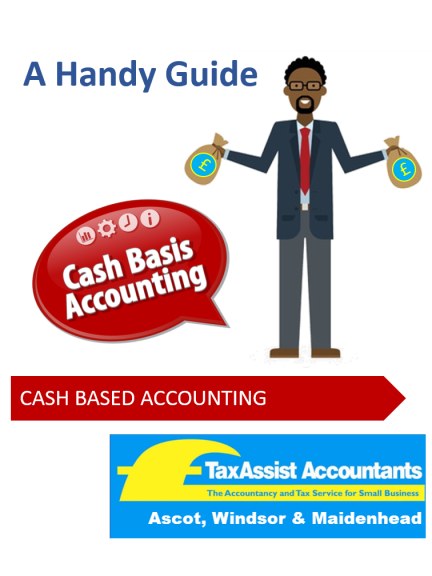
We consider the optional rules which allow small unincorporated businesses to calculate their profits for tax purposes on a cash basis rather than the normal accruals basis.
One example which illustrates the difference between the accruals basis and cash basis is that credit sales are included in the accruals basis accounts income despite the fact that the customer may not have paid for the goods or services by the end of the accounting period. Under the optional cash basis the business is taxed on its cash receipts less allowable cash payments made during the accounting period. So under the optional cash basis credit sales are accounted for and taxed in the year in which they are paid for by the customer.
The main entry criteria are that your business is unincorporated (sole trader or a partnership consisting only of individuals) and that your receipts in the accounting period are less than the VAT registration threshold in force at the end of the relevant tax year.
The current registration threshold is £82,000 (£83,000 from 1 April 2016). For those individuals who intend to make a Universal Credit claim the threshold is set at twice the VAT registration threshold.
There are some individual exclusions from cash basis, for example, Limited Liability Partnerships, Lloyd’s underwriters and those eligible individuals who wish to continue to claim averaging of profits like farmers.
Once the cash basis election is made an individual will generally have to remain in the scheme unless the business either grows too large or there is another acceptable ‘change of circumstances.’ These matters are not considered further here.
Cash Receipts
Cash receipts literally mean all cash receipts that the business receives during the accounting period. As well as trading income this will also include the proceeds from the sale of any plant and machinery.
If a customer does not pay what is owed by the accounting year end then it will not be taxable until the next year when it is actually received by the business.
What deductions are allowable?
In terms of what deductions can be claimed the main rules are that the expenses must have been actually paid in the accounting period as well as being incurred wholly and exclusively for the purposes of the trade.
As is the case with calculating taxable profits generally for a business no deductions are allowed for items which are of a capital nature such as the purchase of property. However, under the cash basis the costs of most plant and machinery can be included as a deduction. One key exception is the purchase of cars.
Relief for interest payments
If you have a business loan or overdraft only interest, payments up to a maximum limit of £500 can be claimed. If, in the future, you have a larger loan and wish to claim more interest as a deduction then this could be treated as a change of circumstances and result in you then having your accounts prepared on the accruals basis.
Restrictions on the use of losses
If your business incurs a loss then under the cash basis this can only be carried forward and set against profits of the same business in future years. This is not as advantageous as the normal rules which will allow the loss to be carried back or set off ‘sideways’ against other income.
In order to ensure that income is taxed and expenses are relieved ‘once and once only’ special calculations are needed on entering or leaving the cash basis.
So, in summary, as you can see there is more to the cash basis than might be expected and we would be happy to review your circumstances to see if this would be suitable for you and your business. Please contact us if you would like any further information.
For information of users: This material is published for the information of clients. It provides only an overview of the regulations in force at the date of publication, and no action should be taken without consulting the detailed legislation or seeking professional advice. Therefore no responsibility for loss occasioned by any person acting or refraining from action as a result of the material can be accepted by the authors or the firm.
Richard is a qualified CIMA accountant with around twenty years’ experience and runs his own accountancy practice in Windsor & Maidenhead. Richard joined The Children’s Heart Federation (CHF) in 2000 where...
The following Cookies are used on this Site. Users who allow all the Cookies will enjoy the best experience and all functionality on the Site will be available to you.
You can choose to disable any of the Cookies by un-ticking the box below but if you do so your experience with the Site is likely to be diminished.
In order to interact with this site.
To help us to measure how users interact with content and pages on the Site so we can make
things better.
To show content from Google Maps.
To show content from YouTube.
To show content from Vimeo.
To share content across multiple platforms.
To view and book events.
To show user avatars and twitter feeds.
To show content from TourMkr.
To interact with Facebook.
To show content from WalkInto.